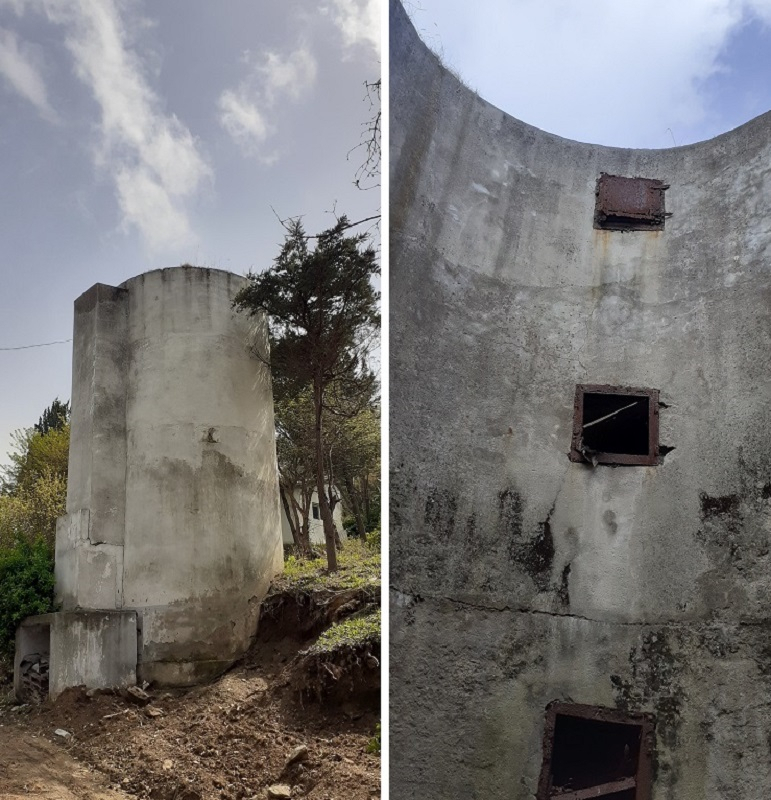American-Korean Foundation’s legacy hangs in the balance
4-H Training Farm in Bucheon, which once nurtured local leaders in agriculture, awaits decision on its fate
By Lee Sun-young
Published : Nov. 7, 2023 - 17:12
On a gentle hill nestled between two wooded areas in Sosa-gu, Bucheon, Gyeonggi Province, lies a long-neglected training compound for farmers.
Occupying nearly 66,000 square meters of land, the compound’s dormitory building, silo for livestock feed storage, pigpen, chicken coup and conference hall, among other facilities, remain tucked out of sight of the surrounding community. The compound's history is unknown even to many of its most immediate neighbors, despite its presence here for six decades.
But the compound's future has become uncertain. The local province has listed one structure as cultural heritage, while the local city government has declared the structures illegal, with at least one slated for demolition.
The story of the 4-H Training Farm dates back to 1963, when the now-defunct American-Korean Foundation sought to help improve the lives of impoverished Korean farmers by empowering young adults with essential skills, knowledge and leadership abilities. It was part of the extensive work of the AKF, founded in 1952 amid the Korean War, to address relief and rehabilitation needs in South Korea.

“Young trainees, who were selected from all across the country, stayed in the dorm and took part in the training program, which lasted from as short as four weeks to (several) months,” said Lee Chang-ho, who received training there in 1978.
“The facilities were state-of-the-art at that time, with a separate bathhouse, a conference hall and so on," Lee said.
In addition to practical tips on how to raise non-native species of pigs, cattle and poultry, and how to manage a farming business, the program covered organizing and conducting meetings in a democratic way, he recalled.
The farm-cum-training ground, however, faced closure the following year in 1979, as South Korea’s rapid economic development rendered the AKF’s aid and assistance unnecessary.
‘Unauthorized structures’
In October 2021, more than four decades after the 4-H training farm was shut down and left abandoned, Gyeonggi Province's cultural heritage committee designated one of its facilities -- the silo that stored livestock feed -- as regional cultural heritage.

In its decision, the committee noted the role the training institution had played in “the reconstruction and modernization of rural communities and the transfer of agricultural technologies” in post-war Korea and said that it “deserves to be preserved” as a testament to the societal and historical context of the time.
In addition, the committee recommended that the local government initiate necessary procedures for designating the rest of the facilities as cultural heritage as well.
Today, the fate of the farm facilities -- all except the silo -- hangs in the balance, legally defined as “illegal structures” infringing upon development-restricted areas.
In its response to an inquiry from The Korea Herald, the city government of Bucheon, which has jurisdiction over the site, stated that at least one of the structures -- the dorm building -- is subject to demolition.
The rest are "difficult to utilize" due to their illegal status, it said in a written response.
The buildings have had various private owners since the dissolution of the foundation and the city had, over the years, worked out compensation deals for their removal, it said.

The municipality also shared that earlier this year, it studied ways to legalize the buildings, but determined it impossible under the current rules. The illegality of the structures remains the primary obstacle preventing their consideration for cultural heritage designation, it said.
“The site belongs to an urban neighborhood park which is in the process of being re-planned. The fate of the farm facilities is linked to how the concept, design and theme of this park are determined,” a Bucheon official explained over the phone.
Choi Ok-soon, a Bucheon city council member, has been calling for political commitment to preserve the site and legacy of the AKF, out of respect for the tremendous work the nonprofit foundation did to assist the Korean people when they were most in need.
“How many of the cultural heritage sites would have been ‘legally’ built? We should find a way, (like through) special legislation, (to prevent the farm from facing demolition,)” she said.
Lee, the former trainee who now serves as the secretary general of the 4-H Training Farm alumni group, stressed that Korea should not forget the work of the AKF.
“The AKF, with funds and goods donated from American citizens, assisted Korea in nearly every imaginable field except defense, laying the foundation for Korea we see today,” he said. “This year marks the 70th anniversary of the Korea-US alliance and I believe it's a fitting time to express our gratitude for the AKF's contributions by honoring its legacy."











![[Kim So-hyun] The quiet taxi driver from Paris](http://res.heraldm.com/phpwas/restmb_idxmake.php?idx=644&simg=/content/image/2024/04/25/20240425050891_0.jpg&u=)







